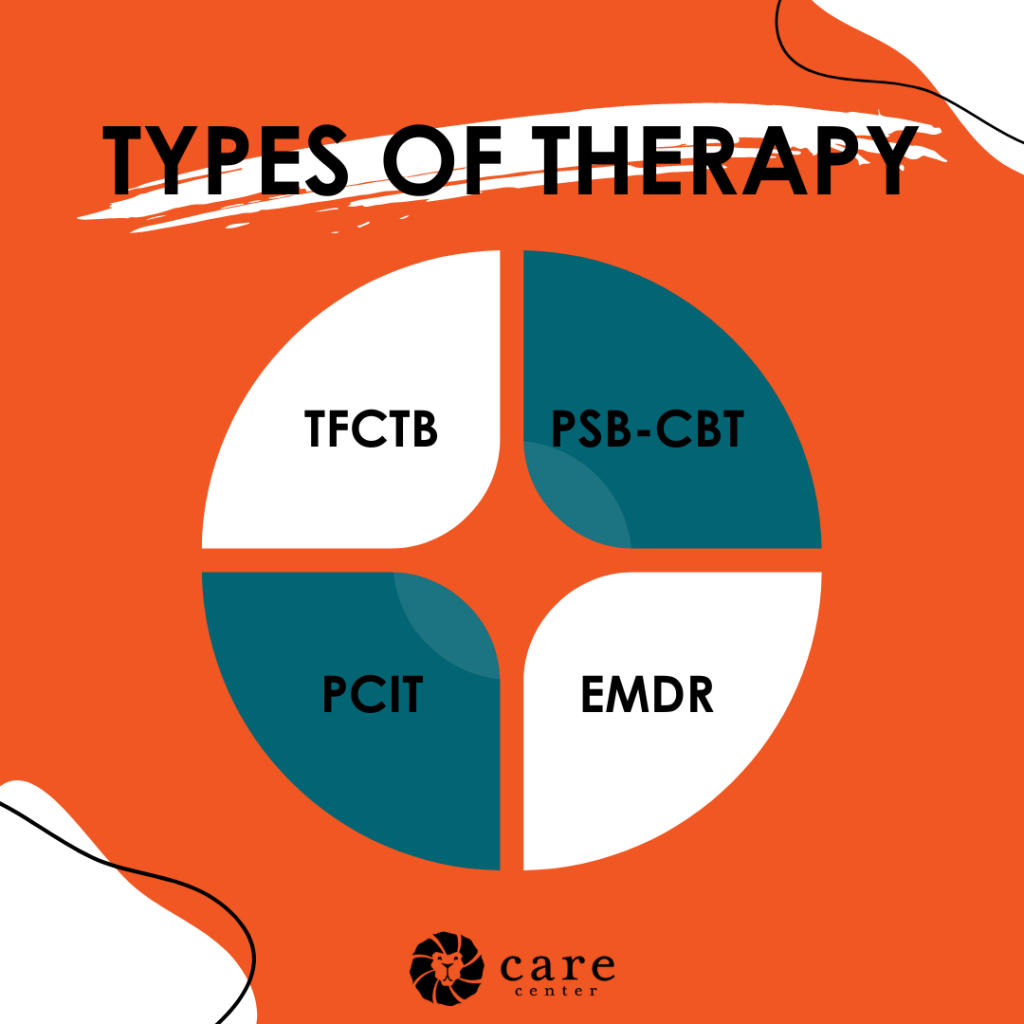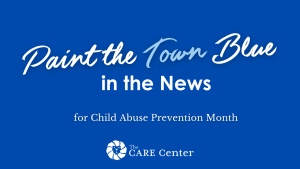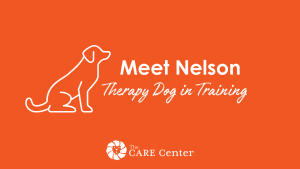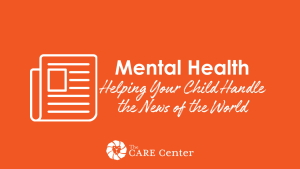Providing a Safe Haven: The CARE Center’s Free Mental Health Services
At CARE conception, we noticed there was a need for mental health services for child abuse victims and their caregivers in the community. Our response? We now offer on-site services completely free of charge, fostering greater accessibility and support for those in need.
As a child advocacy center, we felt a responsibility to provide ideal mental health treatment for all our brave visitors. Luckily, we found the ideal team for this task,” said Hannah Griffis, Director of Mental Health at The CARE Center.
In fact, our Mental Health Department has significantly grown over the past few years. The team consists of four people including, Hannah Griffis, our Director of Mental Health, Whitney Hammer, our Mental Health Coordinator, and Chloe Byrd and Kristine Johnson, our two therapists.
“I could talk all day about my wonderful team. I feel emotional writing this. They are just the best of the best. They have truly dedicated this season of their lives to serving children who are survivors of abuse,” said Griffis.
This dedication is evident in the number of people our Mental Health team manages to help throughout the year. In just March and April, Whitney Hammer met with more than 45 kids to provide a space to debrief after challenging interviews and the department has connected nearly 200 families with mental health resources. To ensure everyone receives the help they need, we also have a large and diverse network of partner agencies we can refer to if necessary. This includes bilingual therapists to aid families that aren’t predominately English-speaking.
“This is not an easy job. Every single day, we hear intense details about the horrible things our kids have gone through. My teammates are strong and resilient, patient and kind, and incredibly smart! I’m always blown away by their creative ideas and how they conceptualize cases to get kids the best help possible,” Griffis said.
Our team specializes in a wide variety of therapies. These include Trauma Cognitive Behavioral Therapy (TF-CTB), Problematic Sexual Behavior Cognitive Therapy (PSB-CBT), Parent-Child Interaction Therapy (PCIT), and Eye Movement Desensitization and Reprocessing (EMDR), which has been a recent addition.

Trauma Cognitive Behavioral Therapy (TFCTB):
TFCTB is typically geared toward children that have encountered sexual abuse. It is typically short-term and lasts up to 25 sessions. This form of therapy allows the victim and their family/caregiver to change their mindset from intrusive to a much healthier way of thinking. Initially, the therapy sessions for the child and family member/caregiver are separate but eventually, they have joint sessions.
Problematic Sexual Behavior Cognitive Therapy (PSB-CBT):
PSB-CBT is a form of therapy targeted toward children with problematic sexual behaviors. It can range from 12-23 sessions and can also be used for therapy. PSB-CBT is the best fit for a variety of institutions such as child welfare, schools, and child advocacy centers.
Parent-Child Interaction Therapy (PCIT):
This form of therapy involves play and behavioral therapy, and it was developed for children ages two to seven. PCIT focuses on the parent/caregiver relationship by creating a coaching environment to educate parents. Typically, it involves a certified therapist coaching the parent/caregiver interacting with the child while being behind a one-way mirror.
Eye Movement Desensitization and Reprocessing (EMDR):
According to Psychology Today, “EMDR is a psychotherapy technique designed to relieve the distress associated with disturbing memories.”
It involves recalling traumatic experiences with guidance from the therapist. This technique uses eye movements to allow the trauma to be reprocessed in a positive manner. While this form of therapy was initially used for people struggling with post-traumatic stress disorder, it is now applied to a variety of conditions.
At The CARE Center, we prioritize the health and well-being of our community by arranging the best care and services for each individual child, caregiver, and family. CARE emphasizes finding the perfect match between children and a provider while being passionate about preventing and ending child abuse, generational cycles, and creating an environment to heal from child abuse.
If you or a loved one needs help, please reach out to a mental health professional immediately.
For more mental health resources, visit the 988 Oklahoma Hotline available in both English and Spanish, Oklahoma SafeLine, or reach out to our Mental Health team at mentalhealth@carecenter-okc.org.



